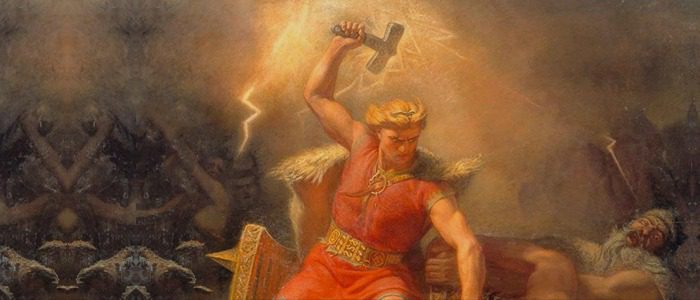A Beginner’s Guide to the Days of the Week in German
Just like in English, there are only seven days of the week in German.
So how can there be a whole article written about this?
You just have to look deeper.
If you memorize the days as just words, you’re missing out on background and additional information that all native speakers have.
Why do the days have their names? Are there special words or phrases that are related to days of the week?
What about grammar – does it work just like English, or are the days treated differently? (Hint: Yes.)
It may be a simple topic, but that’s exactly why you need to know it.
Let’s get started!
Ground Rules
A couple of things that apply to all German days of the week: they’re all grammatically masculine, they’re all capitalized, and you always use am to say on (On Monday, on Tuesday, etc…)
When you’re talking about doing things regularly (On Fridays I skip class) you use the genitive. Fortunately, the end result is exactly the same as in English – you just add an ‘s’ – and so you could be forgiven for thinking that you’re actually using the plural. When you do this, don’t capitalize the word.
Ich gehe sonntags wandern.
I go hiking on Sundays.
When you’re talking about a stretch of time, use von…bis to say from X to Y.
Der Bank ist von Montag bis Mittwoch verschlossen.
The bank is closed from Monday through Wednesday.
Days of the Week in German

Montag
(Mo for short, plural Montage)
Literally means “day of the moon” as it does in many other languages around the world. Monday is the beginning of the week in German-speaking countries, just like the rest of Europe.
The most important Monday in Germany has got to be Rosenmontag, which is on the Monday before Ash Wednesday. It’s the high point of the Karneval celebrations, with most schools and offices closed all day for the parades and festivities.

Dienstag
(Di for short, plural Dienstage)
Although you can see the word Dienst (service) in this word, it actually refers to a Norse god named Tiw, meaning Tiw’s Day. Not far from the English equivalent!
To say “day of service” you’ll want to add an extra ‘t’ and be very careful with your pronunciation of Diensttag.
Mittwoch
(Mi for short, plural Mittwoche)
Just like the word Mitternacht (midnight), this word means “middle of the week.” It’s an adaptation of the Latin phrase media hebdomas, meaning the same thing. That Latin influence started around the 4th or 5th century AD and kept on coming – you’ll see it again later on in the week.
In English, we continue the theme of referring to Norse gods with our word Wednesday (Woden’s Day). There is in fact a Wodenstag, but it’s not commonly used or spoken at all – only in some dialects or older literature.

Donnerstag
(Do for short, plural Donnerstage)
Donner means “thunder” nowadays, but in ancient times it was spelled Donar and synonymous with the name of the god Thor.
In Bavaria and Austria, Thursday is sometimes called Pfinztag. This word is just as ancient as Donnerstag. It comes from Greek roots meaning “fifth day” – that is, counting from Sunday. Pfinztag was used by Goths and other early Christians who didn’t want to make reference to the Norse gods in their everyday speech. By now, the other alternate day names have long fallen out of use.

Freitag
(Fr for short, plural Freitage)
Again we see a sort of false root here. Frei doesn’t mean free here, instead it comes from another god’s name, Frigga.
There’s a relatively common expression in German, schwarzer Freitag. Black Friday in English is associated with shopping sprees, but in Germany it’s a reminder of a nineteenth-century economic crisis. The expression can be translated something like “a dark day (for somebody)” in an economic context.
Ein schwarzer Freitag für Kleinanleger.
A dark day for small investors.
Samstag
(Sa for short, plural Samstage)
Here’s a change of pace. This word is actually cognate with English sabbath – if we go back to Old High German sambaztag you can see the connection a little clearer.
All German speakers will also understand the older word Sonnabend, which was actually the official form in the German Democratic Republic. Older speakers in North and East Germany today might even prefer Sonnabend in natural speech. According to ancient German tradition, the day actually began in the evening!

Sonntag
(So for short, plural Sonntage)
No tricks here. This looks like and means “day of the sun.” For a long time, Sunday was seen as the first day of the week in Germany, though it’s now shifted to Monday.
In Europe, Sunday is literally codified as a day of rest. Large supermarkets and malls are required by law to close on Sunday – so don’t expect to get much shopping done am Sonntag!

Although I’ve just given you a list of the days of the week in German, it’s actually not a good idea to try to memorize them in order.
When we try to learn lists of related words in foreign languages, our brains rely on that list structure for recall. The pattern of the recitation becomes more powerful than the memory of the word.
Think of how many people have trouble with “left” and “right” in any language. That’s because they try to memorize them together – every time! And that causes the wires to keep on crossing because the brain doesn’t ever learn to properly separate them.
That’s why learning German from context – from authentic, interesting native content – is the best way to go. It’s not as boring as vocabulary lists, and you’ll get the repetition you need naturally over time. For example, interviews are great for casual conversation and sometimes listening to songs will help you learn some German slang vocabulary.
You can take some steps right now to start acquiring this contextual knowledge. Changing your phone or your computer’s calendar to German is an easy start. Even seeing the abbreviated forms of the days – Mo, Di, Mi, that sort of thing – will start to trigger your memory for the full words.
Check out LingQ today to discover the best way to learn German from content you love!
LingQ has thousands of hours of content, including short stories, interviews, and news in the German language to help you study. Try LingQ for free and start your journey in becoming fluent in German.

***
Alex Thomas is a translator, teacher, and writer with an interest in every language. He speaks German, Mandarin, and Indonesian, and is always looking to learn more.
***

